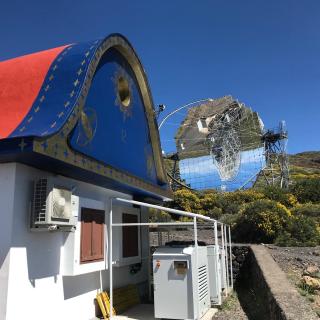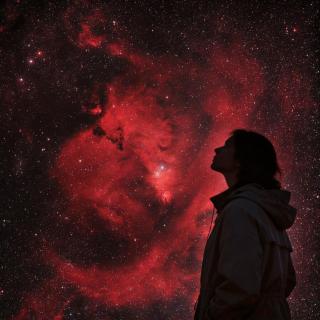It may interest you
-
 The headquarters of the Instituto de Astrofísica de Canarias (IAC) and its technological headquarters, IACTEC, open their doors to the public at their Open Days as part of Open Government Week 2025. This initiative, promoted by the Open Government Partnership worldwide, seeks to bring public administrations closer to citizens and promote the values of transparency, integrity, participation and accountability. The event at the IAC headquarters will take place on Monday 19 May, while the IACTEC will open its doors on Tuesday 20 May. Both days will be held in person, with two visiting hoursAdvertised on
The headquarters of the Instituto de Astrofísica de Canarias (IAC) and its technological headquarters, IACTEC, open their doors to the public at their Open Days as part of Open Government Week 2025. This initiative, promoted by the Open Government Partnership worldwide, seeks to bring public administrations closer to citizens and promote the values of transparency, integrity, participation and accountability. The event at the IAC headquarters will take place on Monday 19 May, while the IACTEC will open its doors on Tuesday 20 May. Both days will be held in person, with two visiting hoursAdvertised on -
 La casa de control de los telescopios MAGIC , en el Observatorio del Roque de los Muchachos (ORM), en La Palma, luce desde hoy una nueva imagen, la del “Enano Estelar”, en homenaje a una de las figuras más queridas de las Fiestas Lustrales de la Bajada de la Virgen de las Nieves . La intervención artística, promovida por la colaboración científica MAGIC, ha sido presentada en un acto institucional que ha reunido a autoridades locales, representantes del mundo científico y medios de comunicación. La transformación del edificio —cuya singular cubierta, obra del arquitecto José Luis PortaAdvertised on
La casa de control de los telescopios MAGIC , en el Observatorio del Roque de los Muchachos (ORM), en La Palma, luce desde hoy una nueva imagen, la del “Enano Estelar”, en homenaje a una de las figuras más queridas de las Fiestas Lustrales de la Bajada de la Virgen de las Nieves . La intervención artística, promovida por la colaboración científica MAGIC, ha sido presentada en un acto institucional que ha reunido a autoridades locales, representantes del mundo científico y medios de comunicación. La transformación del edificio —cuya singular cubierta, obra del arquitecto José Luis PortaAdvertised on -
 Con motivo del Día Internacional de la Mujer, que se conmemora ese 8M, el Instituto de Astrofísica de Canarias (IAC) participa en una iniciativa que invita a redescubrir nuestra relación con el universo desde una perspectiva científica y humana de la mano de la entidad iisgood. Bajo el título de ‘Volver a soñar estrellas’, el Museo de la Ciencia y el Cosmos (MCC), del Organismo Autónomo de Museos y Centros del Cabildo de Tenerife, acogerá una mesa redonda este 12 de marzo a las 17:30 horas con entrada libre y gratuita hasta completar el aforo. En este encuentro, cinco destacadasAdvertised on
Con motivo del Día Internacional de la Mujer, que se conmemora ese 8M, el Instituto de Astrofísica de Canarias (IAC) participa en una iniciativa que invita a redescubrir nuestra relación con el universo desde una perspectiva científica y humana de la mano de la entidad iisgood. Bajo el título de ‘Volver a soñar estrellas’, el Museo de la Ciencia y el Cosmos (MCC), del Organismo Autónomo de Museos y Centros del Cabildo de Tenerife, acogerá una mesa redonda este 12 de marzo a las 17:30 horas con entrada libre y gratuita hasta completar el aforo. En este encuentro, cinco destacadasAdvertised on
